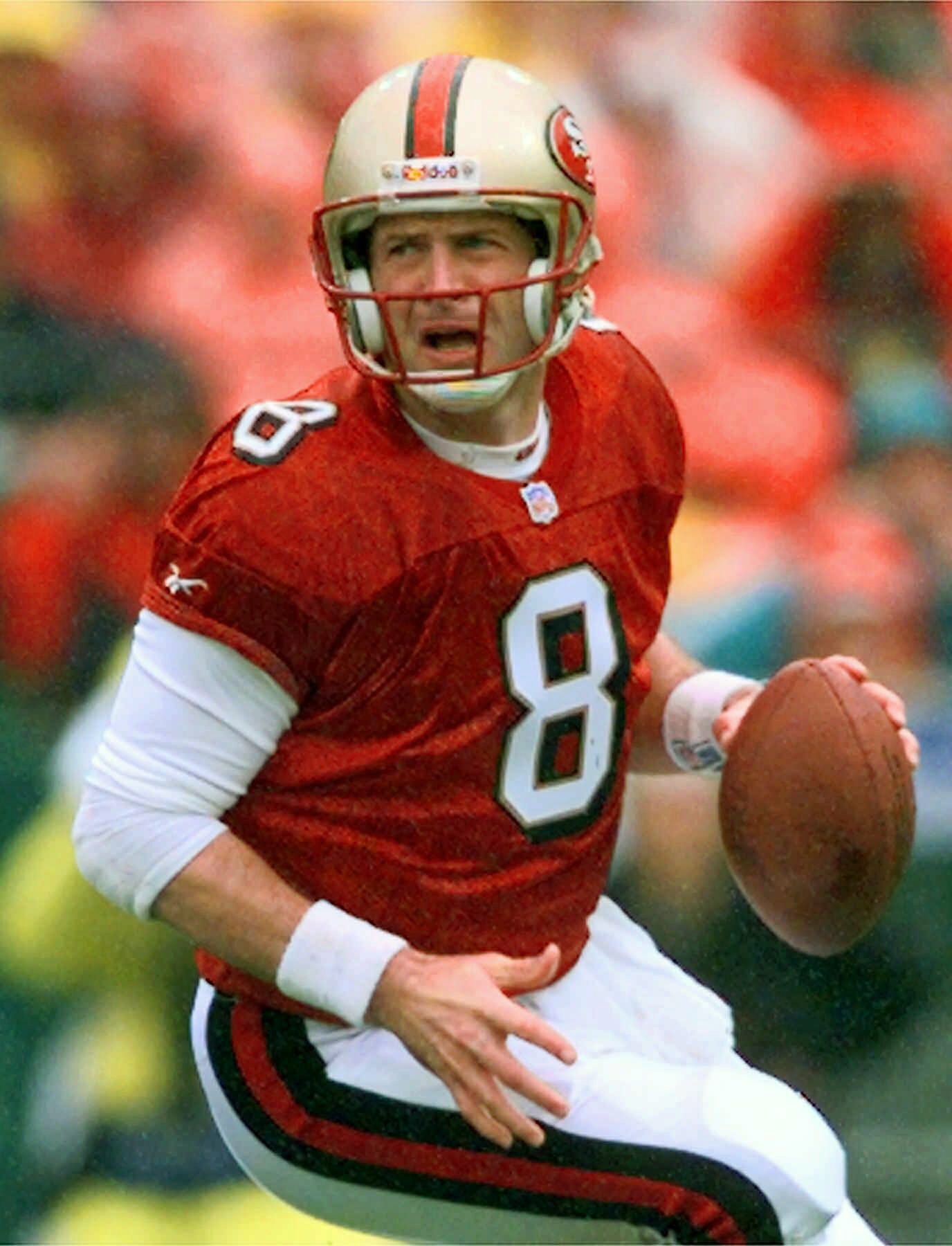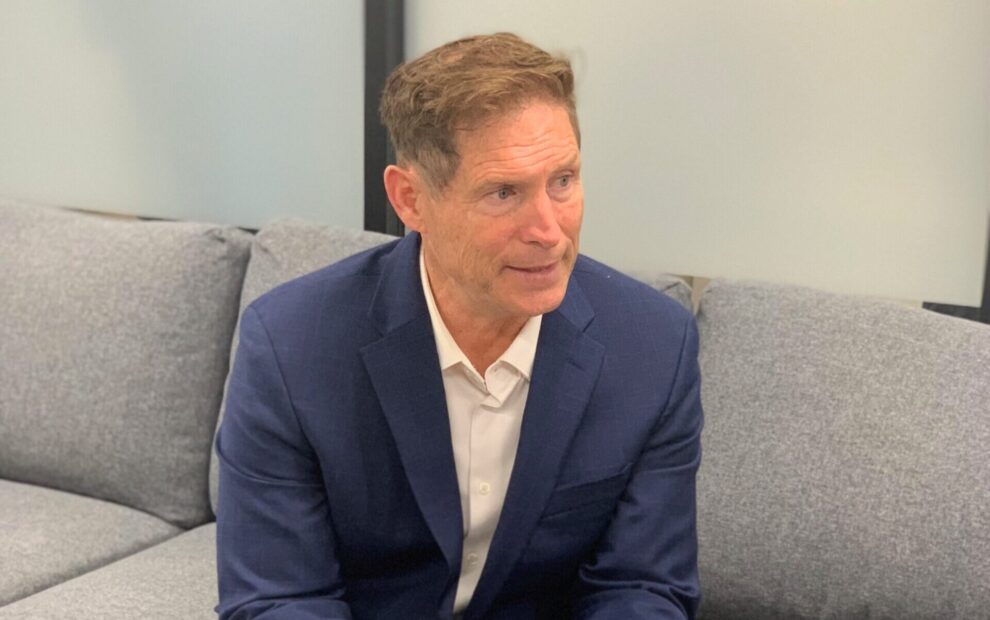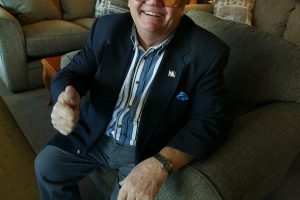When Steve Young was a young NFL football player, he had an epiphany that would ultimately serve him well on both the field of play and in the boardroom.
As the quarterback of the San Francisco 49ers in the early 1990s, Young had the unenviable job of filling the cleats of the legendary Joe Montana.
Young was in Winnipeg in May to receive the International Distinguished Entrepreneur Award from the Associates at the I.H. Asper School of Business.
When Young would throw an interception, he’d feel badly when he got back to the sideline, where one of his coaches was inevitably waiting to find out what happened.
“Why did you throw it to the other team?” the coach would ask.
Young would be quick to point out, for example, that one of his offensive linemen had missed a block and that his intended receiver had run the wrong route. When the coach asked the lineman and receiver for their versions, they’d often say, “that guy is no Joe Montana.”

His teammates didn’t respond well to Young’s explanation. Eventually, he discovered that what solves the problem is finding the “truest truth.” The ball was in his hands on every offensive play and he needed to take responsibility for the outcome.
“You need to have the vulnerability to recognize when you screw up, say sorry and then go fix it,” he says.
The impact on the 49ers of Young’s epiphany was significant. Now when he’d throw the occasional interception, he’d own up to what he could have done differently and the lineman and receiver would admit that they had missed their assignments.
The team went on to win the Super Bowl in 1995.
“The greatest way to inspire people around you is own your mistakes and go fix them. That’s the truest truth. I’m responsible and I’m going to fix it. What solves the problem is finding the truest truth. Don’t excuse accountability.”
Young was quick to point out that while the receiver and lineman making mistakes was certainly true, neither incident was the truest truth. The truest truth was that he needed to adapt quicker and make a better play.
Today, he is the chairman of Huntsman Gay Global Capital (HGGC), a Palo Alto, California-based private equity firm he co-founded in 2007. It manages more than $7 billion in assets and has completed more than 730 platform investments, add-on transactions and exits, totalling more than $79 billion in enterprise value. (All figures are in U.S. dollars.)
HGGC operates in the mid-range market in the private equity space, investing in businesses with enterprise values up to $1.5 billion. It targets four primary sectors—technology, business services, financial services and consumer.
When investigating potential investments, Young says HGGC looks at the people first and foremost because he wants to underwrite and invest in them.
“There are all kinds of elements of businesses that make them capable of great investments in private equity. Most of it is making sure they can grow. It’s building a good business into a great company. It’s finding those good businesses that aren’t broken—they’re thriving but they need specific things to be a great company. We can help them do that,” he says.
Young says another lesson he imported to the boardroom is the importance of realizing that you can’t do it alone.
“In football, there’s too many people. It’s chaos. Yet, that’s where the magic is. When too many people come together, that’s business. How do we have all of these human beings subsume themselves, their personal goals to the team goal, to the company to make it successful?” he asks.
“Businesses that can do that—I call that transactional versus abundance. If it’s just you getting a paycheque and going home, it’s never going to be the place you care enough to really make a difference. If I was going to look for a job today, I wouldn’t care where it was as long as the culture developed me as a person and helped us see we could do great things together. It’s so obvious but so many people don’t put the time in to develop that kind of culture.”
Young has made sure to surround himself with successful people who can do the things that he can’t, such as assigning a value to a business and determining how much HGGC should pay for it.
“How do we see what the capacity of this business is? How do we recognize its potential? In private equity, that modelling skill is the superpower. I can say that because I don’t have it,” he says with a laugh.









